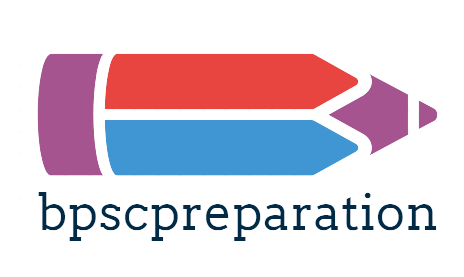BPSC CCE or the Bihar Public Service Commission Combined Competitive Examination is an examination for the recruitment of officers to serve the state of Bihar. The examination is conducted in three stages. Starting from Prelims then Mains and finally concludes with the interview. In the Mains exam there is a paper of an optional subject. A candidate has to chose one subject out of a total of 34 optional subjects offered by the BPSC. Psychology optional is one among them. In this post you will get to know the BPSC Psychology Optional Syllabus.

Section 1 Foundations of Psychology
The Scope of Psychology- Place of Psychology in the family of social and behavioural sciences.
Methods of Psychology- Methodological problems of Psychology. General design of Psychological research. Types of Psychological research. The characteristics of Psychological measurement.
The nature, Origin and development of human behaviour- Heredity and environment. Cultural factors and behaviour. The process of socialisation. Concept of National Character.
Cognitive Processes- Perception, Theories of perception, Perceptual organisation. Person perception, Perceptual defence. Transactional approach to perception. Perception and personality. Figural after-effect. Perceptual styles, perceptual abnormalities Vigilance.
Learning- Cognitive, Operant and Classical conditioning approaches, Learning phenomena, Extinction. Discrimination and generalisation, Discrimination learning, Probability learning. Programmed learning.
Remembering- Theories of remembering. Short-term memory, Long-term memory, Measurement of memory, Forgetting Reminiscence.
Thinking- Problem solving, concept formation, Strategies of concept formation, Information processing, Creative thinking, Convergent and Divergent thinking, Development of thinking in children, theories.
Intelligence- Nature of intelligence Theories of intelligence, Measurement of intelligence, Measurement of creativity. Aptitude, Measurement of aptitudes. The concept of social intelligence.
Motivation- Characteristics of motivated behaviour. Approaches to motivation: psycho-analytic theory; Drive Theory; Need hierarchy theory, Vector valence approach, Concept of level of aspiration. Measurement of motivation. The apathetic and the alienated individual, Incentives.
Personality-The concept of personality. Trait and type approaches, Factorial and dimensional approaches, Theories of personality; Freud, Allport, Murray, Cattell; Social learning theories and Field Theory. The Indian approach to personality- the concept of Gunas. Measurement of personality: Questionnaires; Rating Scales; Psychometric Tests; Projective Tests; Observation method.
Language and Communication- Psychological basis of language. Theories of language development: skinner and Chomsky, Nonverbal communication, Body Language, Effective communication: Source and receiver characteristics. Perstasive communication.
Attitudes and values- Structure of attitudes, formation of attitudes. Theories of attitude, Attitude measurement. Types of attitude scales, Theories of attitude change, Values. Types of values. Motivational Properties of values. Measurement of values.
Recent trends.-Psychology and the Computer, Cybernetic model of behaviour. Simulation studies in psychology, Study of consciousness. Altered states if consciousness. Sleep. Dream, meditation and hypnotic trance. Drug induced changes. Sensory deprivation. Human problems in aviation and space flight.
Models of Man, The Mechanical Man, The Organic Man- The Organçational man. The Humanistic Man. Implications of the different models for behaviour changes. An integrated model.
Section 2 Psychology: Issues and Applications
Individual Differences.- Measurement of individual differences. Types of psychological tests. construction of psychological tests. characteristics of good Psychological tests. Limitations of psychological tests.
Psychological Disorders- Classification of disorders and nosological systems. Neurotic, psychotic and psychophysiologic disorders. Psychopathic personality. Theories of psychological disorder. The problems of anxiety, depression and stress.
Therapeutic Approaches- Psychodynamic approach. Behaviour therapy, Client centered therapy. Cognitive therapy. Group therapy.
Application of psychology to organçational and Industrial problems- Personnel selection. Training. Work motivation. Theories of work motivation Job designing. Leadership training. Participatory management.
Small Groups- The concept of small group. Properties of groups. Group at work. Theories of group behaviour. Measurement of group behaviour. Interaction process analysis. Interpersonal relations.
Social Change-Characteristics of social change. Psychological basis of change. Steps in the change process Resistance to change. Factors contributing to resistance. Planning for change. The concept of change proneness.
Psychology and the Learning Process- The Learner. School as an agent of socialçation Problems relating to adolescents in learning situations. Gifted and retarded children and problems related to their training.
Disadvantaged Groups- Types: Social, cultural and economic. Psychological consequences of disadvantage. Concept of Deprivation. Educating the disadvantaged groups. Problems of motivating the disadvantaged groups.
Psychology and the problem of social Integration. The problem of ethnic prejudice. Nature of prejudice. Manifestations of prejudice Development of prejudice. Measurement of prejudice. Amelioration of prejudice. Prejudice and personality Steps to achieve social integration.
Psychology and Economic Development- The nature of achievement motivation. Motivating people for achievement. Promotion of entrepreneurship. The Entrepreneur Syndrome. Technological change and its impact on human behaviour.
Management of Information and Communication- Psychological factors in information management. Information overload: Psychological basis of effective Communication. Mass media and their role in social change. Impact of television. Psychological basis of effective advertising.
Problems of Contemporary Society- Stress. Management of stress. Alcohalism and Drug addiction. The socially Deviant. Juveline Delinquency. Crime. Rehabilitation of the deviant. The problems of the Aged.
FAQ
How many marks has been allotted to BPSC optional?
Starting from BPSC 68 optional has been made qualifying. It means that a candidate has to score a minimum required marks as per his/her category.
How many optional subjects are there in BPSC?
BPSC offers nearly 34 optional subjects in which you have to choose one.

